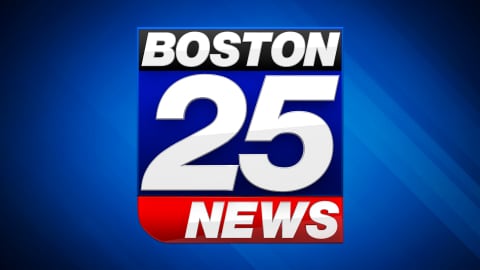BOSTON — Every part of life has been touched by the pandemic, including the arts, as social distancing has created a void in live entertainment.
The Massachusetts Cultural Council recently surveyed their members and found they’ve lost a quarter of a billion dollars.
Melissa Geerlof, a recent graduate of the Boston Conservatory, was scheduled to be performing at the SpeakEasy Stage Company in Boston’s South End right now, but that show has been postponed due to the coronavirus outbreak.
Instead, she’s teaching Zumba classes on Zoom.
The lights have also dimmed on stages on Cape Cod, at the Boston Symphony Orchestra, at Shakespeare & Company in Lenox, and even on Broadway.
Early one Friday evening, Boston’s Theater District was eerily quiet.
“It’s kind of a weird holding pattern right now,” said Geerlof. “I haven’t heard back from any of the theaters that I’ve auditioned for. Oh my goodness, I was doing three to four auditions a day before this all went down.”
Landmark institutions like the Musuem of Fine Arts and the Museum of Science are closed. Smaller museums like the Isabella Stewart Gardner Museum and the Museum of African American History have followed suit.
“Usually in a recession, there’s a sort of downhill slide,” explained Anita Walker, Executive Director of the Massachusetts Cultural Council. “Organizations have a chance to button up and tighten up and maybe reorganize their programming. This was a cliff.”
Across the state, these cultural icons play a key role, not only for the artists, but for the overall economy.
“In healthy times, it is an incredible economic engine and we’re part of the third largest industry in Massachusetts,” added Walker.
There’s a ripple effect as people who visit cultural institutions often shop, eat out, or stay in a hotel.
For many people, the arts are also an important outlet, a chance to reach beyond our day to day lives. Walker says that’s more important than ever.
“That’s the whole super power of the cultural sector, connecting people, inspiring people, enriching our lives by a shared experience, whether it’s in a concert hall or looking at a masterwork of art,” she said.
Social distancing guidelines will provide a real challenge for the arts when the world transitions back to normal.
“I think probably the big venues, the big concert halls, they’re going to be the last to open their doors . . . and maybe be able to serve half capacity, to have people sit farther apart,” said Walker.
The MCC estimates about 15,000 people in the arts have been laid off so far, including performers, artists and all kinds of support staff.
“One thing about artists though is we’re used to being scrappy,” said Geerlof as she thinks about what her future could look like. She still dreams of her next role and performing in front of a live audience. “That’s what we’re missing right now. It’s hard to go without that human connection.”
Both women told Boston 25 News they believe it’s critical that policy makers consider the impact this industry has on the economy as they continue to develop economic aid packages.
The Massachusetts Cultural Council has a COVID-19 Relief Fund. The deadline to apply is April 22.
Download the free Boston 25 News app for up-to-the-minute push alerts
>> Complete local and national coronavirus coverage here
RESOURCES:
- Massachusetts Coronavirus Information
- Boston Coronavirus Information
- Follow us on Facebook and Twitter | Watch Boston 25 NOW

:quality(70)/cloudfront-us-east-1.images.arcpublishing.com/cmg/2DRBVTNXJBF3HDQ4ASNMVGSIQQ.jpg)
:quality(70)/cloudfront-us-east-1.images.arcpublishing.com/cmg/M7XLU5BEQVGPRNBJVTIE7BB464.jpeg)

:quality(70)/cloudfront-us-east-1.images.arcpublishing.com/cmg/7QKIU6WUQVV2PVA5YE6CCCJANM.jpg)
:quality(70)/cloudfront-us-east-1.images.arcpublishing.com/cmg/MUTLRBUP3FFHJPZN4HEYUIDMHM.jpeg)